Evening at Egan
Evening at Egan
Fall 2025
Join us for Evening at Egan, the annual UAS lecture series held each fall which welcomes the Juneau community to engage with leading scholars and experts as they delve into diverse topics, from the role of art in society to climate change, sparking thought-provoking conversations.
Lectures will be in-person and live streamed from the Egan Library on the Juneau Campus. Lectures are free and open to the public. All lectures begin at 7 p.m. Lectures are recorded at the speaker's discretion, available for viewing on the UAS YouTube Channel.
Fall 2025 Lecture Dates (tentative)
- Friday, September 12, 7:00 pm
- Friday, October 10, 7:00 pm
- Friday, October 24, 7:00 pm
- Friday, November 14, 7:00 pm
- Friday, December 12, 7:00 pm
Past Presentations
Brian Palmer, Geoff Kirsch, Davina Cole, Carin Silkaitis
WinterFire: Creative Showcase
Time: 7:00 p.m.
Join us for our annual WinterFire Creative Showcase! This night is a chance for faculty (and friends of UAS) to share their rich and diverse creative expressions. Brian Palmer will be reading excerpts of his poetry; Geoff Kirsch will be showing off his comedic writing; Davina Cole will be displaying her art; and Carin Silkaitis will wow us with their dramatic performances. Click here to watch the livestream and recording.
Brian Palmer (he/him) taught a wide range of literature and writing classes and was the theater director at his high school in Colorado for many years. He now lives in Juneau where he pursues full-time his interests in studying and writing poetry as he explores the various regions of Alaska and other places, with a particular interest in the natural environments of the West and Pacific NW. He publishes regularly in print and for on-line journals, and his recent poetry collection, Prairiehead, was released in the fall of 2023. In addition, he is the editor and publishers of THINK: A Journal of Poetry, Fiction, and Essays.
Geoff Kirsch (he/him) is an Assistant Professor of English at UAS and a Juneau-based writer and humorist, best known locally for his award-winning column 'Slack Tide' in the Juneau Empire. You can access his website at http://www.geoffkirsch.com/.
Davina (Cole) Drones (she/her) is an award-winning visual artist who works with Indigenous fibers, skins, and other regalia. She is is of the Tlingit tribe, Yanyedí of the T’aaku Kwáan. An Indigenous artist who works with fibers, skins, and other regalia to connect with her culture and provide beautiful items for herself, her family, and her friends. Davina will share her artistic process as an Indigenous artist.
Carin Silkaitis (they/them; she/her) is the Interim Provost at the University of Alaska Southeast and a Professor of Humanities. After graduating from the School at Steppenwolf, Carin spent years as a working actor and director in Chicago, with many of those years represented by the wonderful folks at Gray Talent Group. They are a proud member of AEA and SAG/AFTRA. Carin’s notable TV/Film credits include: Co-Star on EMPIRE (FOX), CHICAGO FIRE (NBC) & THE RED LINE (CBS), Nurse in the SAG Feature UNEXPECTED (currently on Amazon Prime Video), and Joy in the award-winning short BEING HERE (winner - Best Supporting Performer, Berkshire Short Film Fest). Notable theatre (acting) credits include: Vera in INDECENT (Perseverance Theatre Co), Mama in A SHAYNA MAIDEL (Timeline Theatre Co), Mother in MACHINAL (Greenhouse Theatre Co), Me in I DO TODAY (Greenhouse Theatre Co), Chloe in LIPS TOGETHER, TEETH APART (Eclipse Theatre), Doctor Manor, etc. in SONS OF THE PROPHET (American Theatre Company), Queen Margaret in RICHARD III (Oak Park Festival Theatre), Dean Wreen in SEVEN HOMELESS MAMMOTHS WANDER NEW ENGLAND (Theater Wit), Mama/Sherry/Vera in DISTRACTED (u/s American Theatre Company), Izzy in RABBIT HOLE (u/s Goodman Theatre). Her favorite regional credits include: LOVE LETTERS, DANGEROUS LIAISONS, and A COMEDY OF ERRORS. Carin has also appeared in many commercials and industrials. Carin received their M.F.A in Acting from the Theatre Conservatory at Roosevelt University in Chicago.
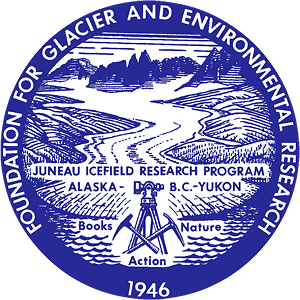
Members of the Juneau Icefield Research Program
Working on Ice: Field Notes from the Juneau Icefield Research Program
Time: 7:00 p.m.
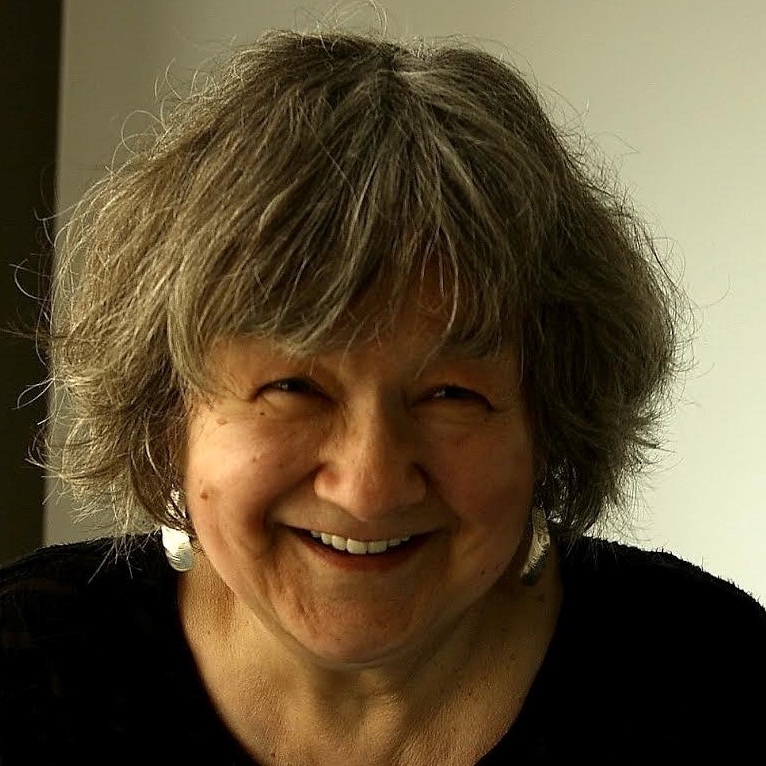
Ernestine Hayes, Professor Emertia, UAS English Department; Author of Blonde Indian and The Tao of Raven
Pleistocene Raven: Old Stories, New Writing
Time: 7:00 p.m.
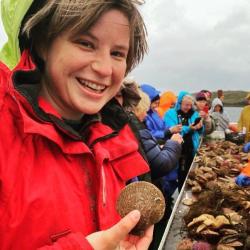
Dr. Skylar Bayer, Marine Habitat Resource Specialist of the National Marine Fisheries Service (NMFS)
Uncharted: Stories of Scientists Navigating Disabilities, Chronic Conditions, and Potential Bias in STEM Careers
Time: 7:00 p.m.
While cultivating her career as a scientist, Dr. Skylar Bayer has developed a career in science communication, dabbling in a diversity of activities including an appearance on The Colbert Report in 2013 about a case of missing scallop gonads. Since 2014, she has worked as a producer for The Story Collider, a non-profit dedicated to storytelling in STEAM by giving researchers, doctors, engineers, poets, comedians, and more, an opportunity to share their personal experiences. She has co-authored several papers on the importance of storytelling as a science communication tool, taught science storytelling both in Story Collider workshops and as a professor at Roger Williams University. She has also performed stories at Moth story slams, Story District, Perfect Liars Club, Risk!, Soundbites, Mudrooms, and The Story Collider. She is currently on Juneau’s local Mudrooms storyboard, leading storytelling workshops for the organization. In her dedication to storytelling in science, Skylar is a co-editor of the recently published book “Uncharted: How Scientists Navigate Their Own Health, Research, and Experiences of Bias.” This book is a collection of first-person stories by current and former scientists with disabilities or chronic conditions that have impacted their careers, highlights the experiences of people representing different demographics as well as a diversity of medical conditions and the challenges, ideas, and some solutions to how they have addressed the accessibility problem. She started this project with her co-editor Gabi Serrato Marks because they both told stories for The Story Collider about being limited in their respective fieldwork after being diagnosed with medical conditions. Each share their own unique stories within Uncharted. Using their background in marine science and oceanography, they arranged the book with a nautical journey in mind, making parallels between the uncharted journey on a ship, as they both experienced in graduate school, with the uncharted journey of science and medical diagnosis. Dr. Bayer started this project with Gabi because sharing stories from the perspective of scientists with medical issues and disabilities are important for everyone to hear, especially younger audiences, like students, who may be really interested in a career in STEM and are likely looking for examples or models to whom they can relate and understand. Sharing stories is also important to community building to show each other that we are not alone in our experiences in STEM and by opening up, we can work together to make STEM a more accessible, inclusive and welcoming space for all. With her extensive experience and rigorous training as a scientist as well as sharing stories with a variety of audiences, Skylar is adept at engaging diverse audiences, drawing them in using narratives that speak to common experiences.

Jen Rose Smith, Assistant Professor of Geography, University of Washington
Ice Geographies: The Colonial Politics of Race and Indigeneity
Time: 7:00 p.m.
Jen Rose Smith, a dAXunhyuu (Eyak, Alaska Native) geographer and assistant professor at the University of Washington, will discuss her forthcoming book, Ice Geographies: The Colonial Politics of Race and Indigeneity in the Arctic. Dr. Smith's interdisciplinary research explores the social and political contexts of ice and kelp, highlighting indigenous knowledge and its resistance to colonial and racial formations. A proud UAS graduate, we're so excited to welcome Dr. Smith back to campus to share her innovative work.
This event is made possible through a partnership with Sealaska Heritage Institute and its Indigenizing Education for Alaska program, funded by a grant from the Alaska Native Education Program under the U.S. Department of Education. The program aims to increase the number of Alaska Native teachers in the state. It is presented in collaboration with the UAS Center for Learning and Teaching and the School of Arts and Sciences.
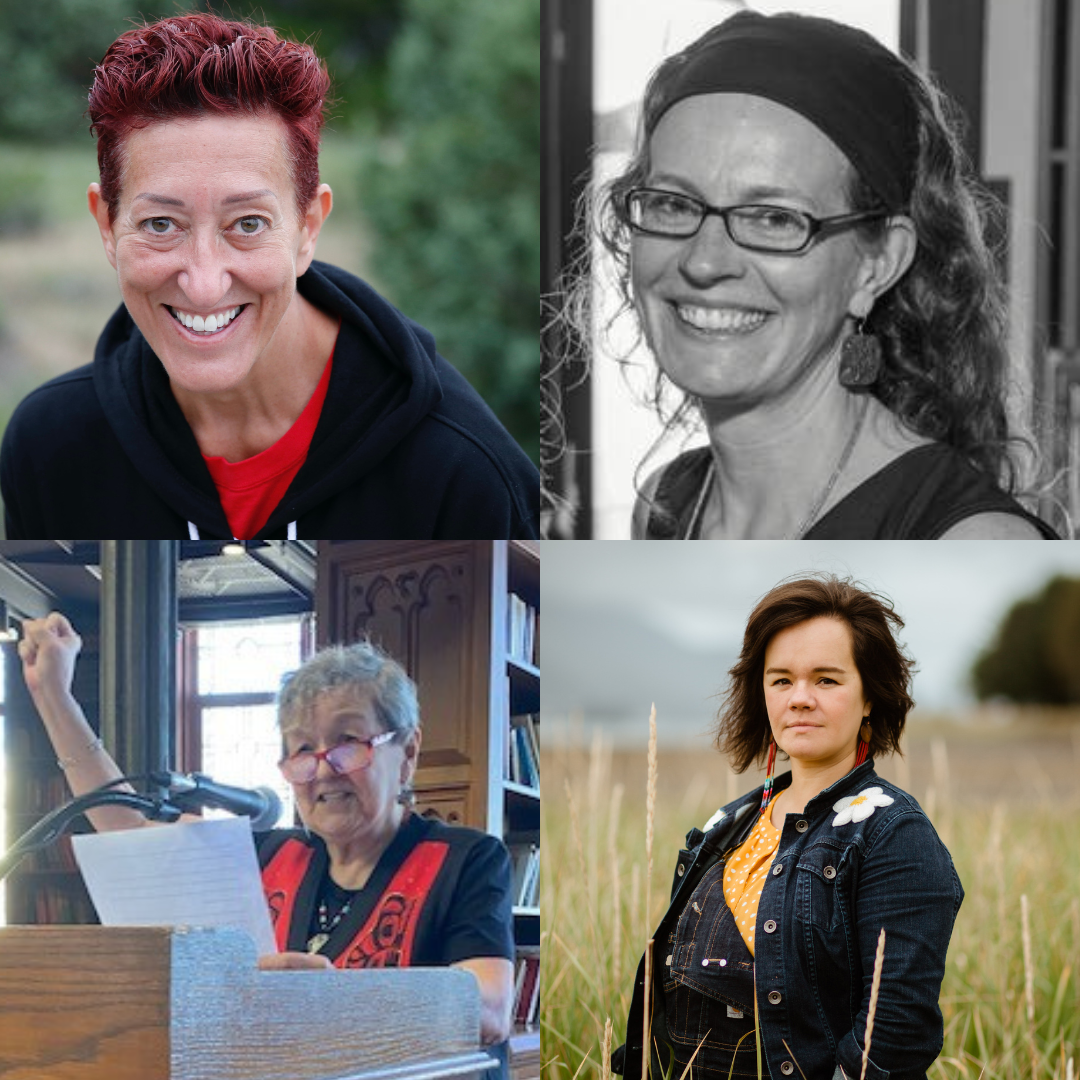
UAS Arts & Sciences Faculty including Ernestine Hayes, Carin Silkaitis, Emily Wall, and more!
Winter Fire Showcase
Time: 7:00 p.m.
UAS Arts & Sciences faculty will come together to present a mesmerizing fusion of creativity and scholarly excellence and encourage a conversation about our community's rich and diverse artistry. Our Creative Showcase is a testament to the power of imagination and inquiry, and we do not doubt that our audience will leave the event with a renewed sense of wonder and a deep appreciation for the myriad ways in which creativity and scholarship intertwine. So please mark your calendars, spread the word, and join us for an evening that promises to be intellectually invigorating and artistically inspiring. Featuring:
- Carin Silkaitis, MFA, Dean of the School of Arts & Sciences
- Emily Wall, MFA, Professor of English
- Ernestine Hayes, MFA, Professor Emeritus of English
- Lily Hope, Tlingit Artist, Textiles and Weaving
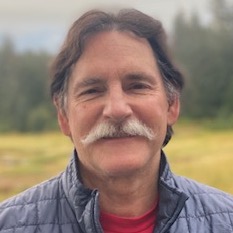
Jim Powell, Assistant Research Professor
Impacts and Responses: Cruise ships and Northern Communities
Time: 7:00 p.m.
NOTE: This event takes place in the Egan Lecture Hall (not the library), and because of the film’s copyright this event will not be live-streamed. Dr. Powell’s talk will be recorded and posted after the event. This event is anticipated to last 90 minutes due to the screening of the documentary film.
The burgeoning cruise ship tourism industry has impacted coastal communities. How do communities benefit and what are the impacts from cruise tourism? A multidisciplinary research team, funded by the National Science Foundation, will present their findings about Juneau’s cruise industry. A new documentary film “Cruise Boom”, set in Sitka (created by Ellen Frankenstein and Atman Mehta) will follow and raise questions relevant to Southeast communities and beyond. How can communities shape tourism? How can mass tourism become regenerative?
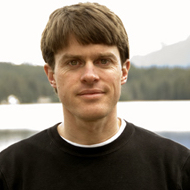
Eran Hood (UAS) and Aaron Jacobs (National Weather Service)
The Suicide Basin glacier outburst flood: 2023 and beyond
Time: 7:00 p.m.
This talk will provide an overview of the 2023 outburst flood from Suicide Basin including why it was larger than in previous years. We will summarize efforts to improve monitoring and forecasting of future outburst floods and discuss our research aimed at understanding how the ongoing evolution of Suicide Basin may impact future flood events.
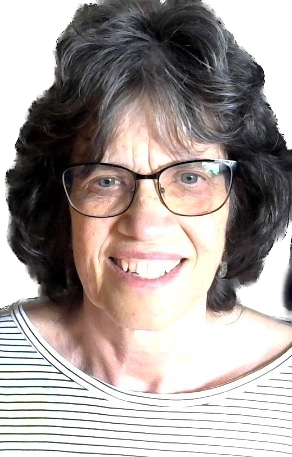
Dr. Rosellen M. Rosich, Ph.D., MA., CDP, CADDCT, Professor Emerita, Psychology UAA
The Vicissitudes of Aging & Brain Health: What Parents' May Never Have Told You!
Time: 7:00 p.m.
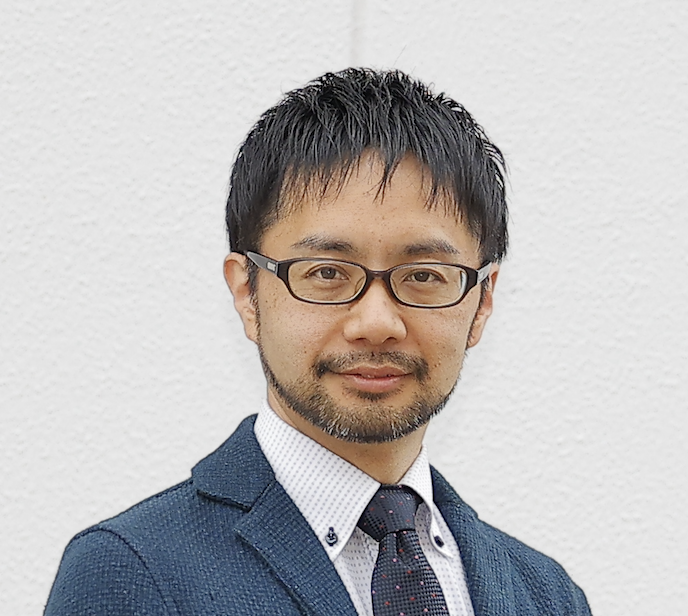
Dr. Shingo Hamada, Fulbright Scholar in Residence
Eating the Herring: Rifts and Responses in the North Pacific
Time: 7:00 p.m.